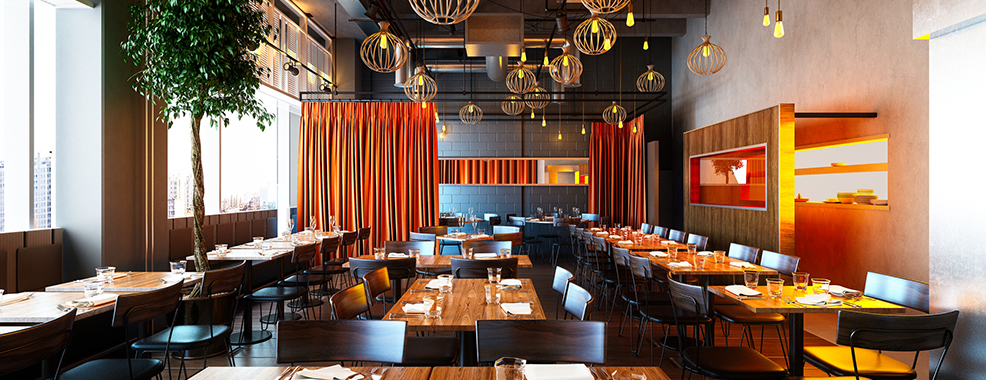Setting the stage: How to master restaurant ambience
You might be familiar with the term ‘first impressions count’, which is exactly the case for your venue. From the moment your diners first enter your restaurant, they’re already inspecting the service, the food and, of course, the ambience — especially on occasions like Valentine’s Day.
A welcoming atmosphere provides an enjoyable dining experience, ensuring that guests feel comfortable and can enjoy every aspect of the service.
In the current digital age, diners often enjoy posting pictures while dining at restaurants, not only of their food but also of the decor and interior. So, let's ensure your venue is Instagram-worthy!
Every detail matters
Paying attention to all the details that create a positive experience is one way to stand out from the crowd and form a solid emotional connection with your customers. Not only does it foster brand loyalty and increase the likelihood of repeat business from guests, but it also encourages them to share their experiences with colleagues, friends and family, generating new booking opportunities.
Therefore, it’s crucial to ensure that every aspect of the dining experience is top-notch - follow these seven steps to make sure your interior provides an ambience worth shouting about:
1. Entrance
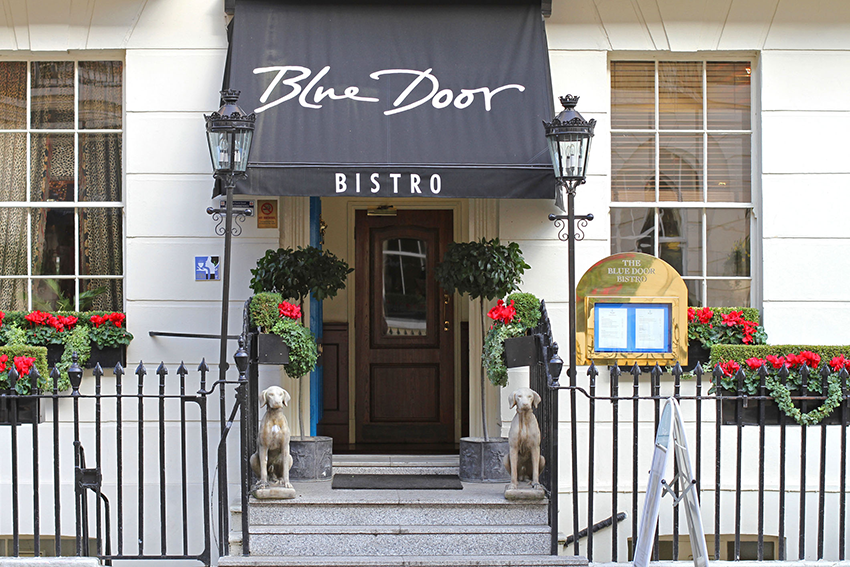 Let's be honest - we start judging a restaurant from the moment we arrive. There's nothing more frustrating for a hungry guest than struggling to locate an entrance or grapple with an unwelcoming door. Enhance your entrance by incorporating an eye-catching sign that reflects your restaurant's style. Additionally, consider introducing greenery or distinctive design elements, such as an appealing door or decor, to captivate the visual senses and make a positive first impression.
Let's be honest - we start judging a restaurant from the moment we arrive. There's nothing more frustrating for a hungry guest than struggling to locate an entrance or grapple with an unwelcoming door. Enhance your entrance by incorporating an eye-catching sign that reflects your restaurant's style. Additionally, consider introducing greenery or distinctive design elements, such as an appealing door or decor, to captivate the visual senses and make a positive first impression.
2. Seating
When guests are seated at your venue, you want them to feel at ease and relaxed. Be wary of your furniture, and ensure tables and chairs are positioned in a space that’s open and not cramped. Furniture should be arranged so it’s easy for staff to navigate the dining area whilst carrying dishes and drinks and guests have enough arm and leg space.
The way seating is designed plays a big role in how a space feels. Different aspects like the materials used, how things are arranged, and the colors chosen all contribute to the atmosphere of the space.
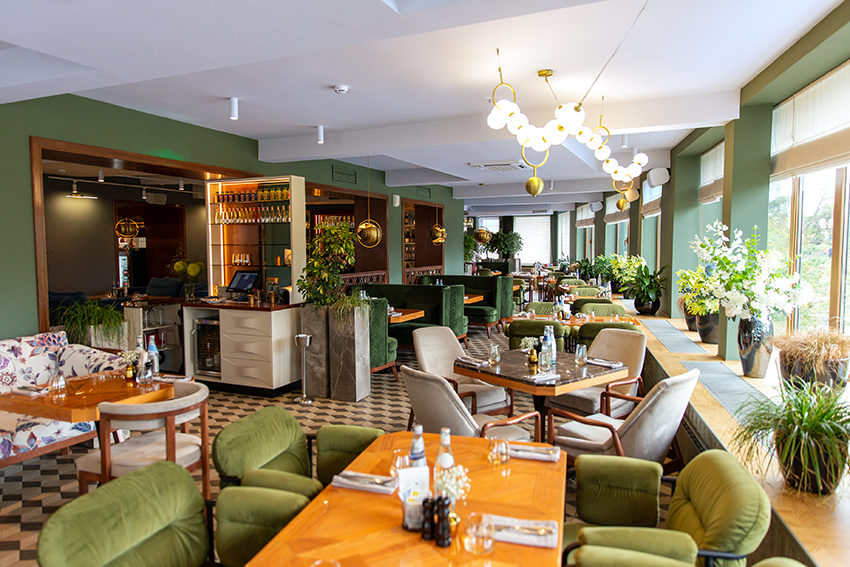
3. Lighting
Whether you’re aiming for an uplifting ambience or a romantic mood, lighting plays a crucial role in setting the tone of your venue. It's important to have sufficient lighting to enable diners to comfortably read your menu. Whether you opt for spotlights, candles or strategically angled lights, ensure your venue is well-lit.
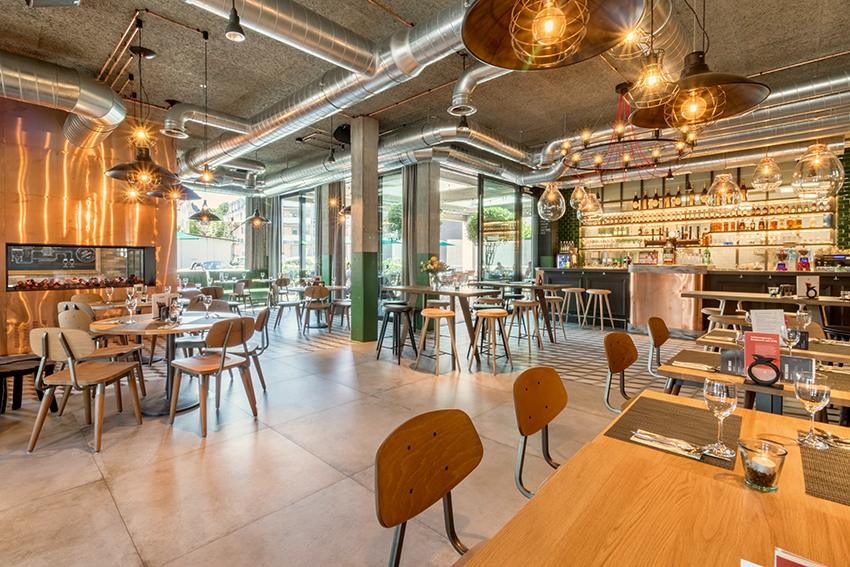 4. Menu design
4. Menu design
How you design your menu depends on your restaurant type, from deciding between a comprehensive book-like format or a concise one-page layout to whether or not to include images. Regardless of the style, it’s crucial to present a clean and concise layout to diners. Ensure you provide valuable information for guests with dietary restrictions, such as a list of allergens and highlighting vegetarian or vegan meals.
Additionally, consider including practical details such as the Wi-Fi password, streamlining the guest experience by eliminating the need to inquire with waitstaff.
5. Sound
Allow music to create a soothing atmosphere for your diners. Striking the right balance is crucial; the volume should not be too loud, hindering conversations, nor too quiet, allowing unintentional eavesdropping. Opt for a subtle touch when selecting music for your venue; we suggest leaning towards a slow and mellow genre. Studies have shown that customers dining with slower-paced music tend to spend an average of 13.56 minutes longer in the restaurant, contributing to a more relaxed and enjoyable dining experience. In the evening, keeping guests in their seats increases the odds of selling more alcohol or a dessert.
6. Colour
Select the colour scheme for your restaurant wisely, as it will influence the mood and ambience you create. Opt for colours that strike a balance - avoid those that are overly intense and those that appear too subdued. Aim for a visually pleasing palette, creating an atmosphere that is neither overwhelming nor dull for your patrons.
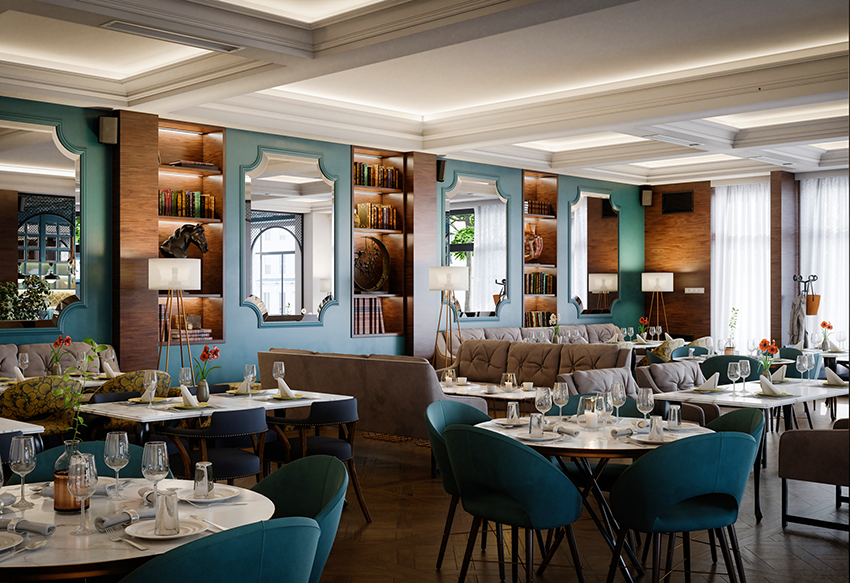
7. Starting online
Typically, the dining experience starts well before guests enter your venue; it begins when potential customers visit your website and consider making a reservation. It's crucial to ensure that both your website and, if applicable, your Quandoo portal page are flawless. Enhance them by uploading fresh, high-quality images that showcase your dishes and inviting interior. Trust us, this effort will increase conversion and get more diners to your doorstep.
Here are some key recommendations for your images:
- Highlight the restaurant ambience: Feature distinct areas with notable decor or lighting, including the bar and outdoor terrace or lounge - especially popular during the warmer seasons.
- Showcase appetising food: Display your most eye-catching or popular dishes, giving diners a glimpse into your culinary offerings and specialities.
Hint: Landscape orientation in food photography is ideal for capturing a broader scene, showcasing multiple dishes, or conveying a contextual dining experience. It provides a horizontal canvas to tell a more comprehensive visual story.
If you wish to update the images on the Quandoo portal, please contact our Customer Success team.
Want to learn more about how to improve your restaurant operations? We’d love to speak with you – get in touch with our sales team here.


